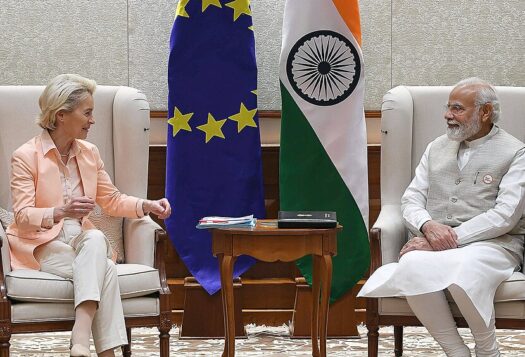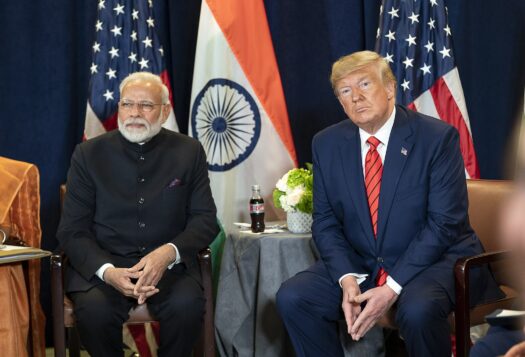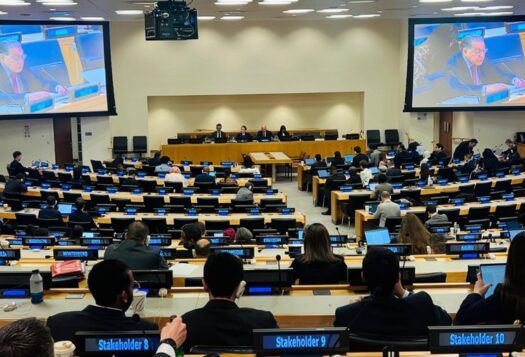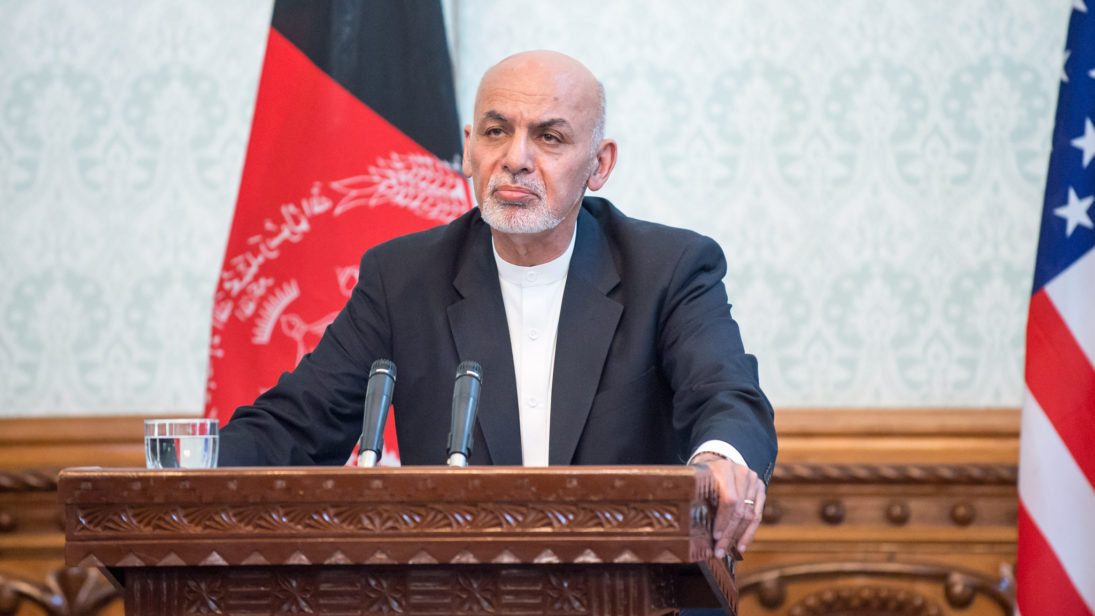
After weeks of confusion, Afghanistan’s Independent Election Commission recently announced that the presidential elections, originally scheduled for April but delayed twice, will finally be held on September 28. This comes in the backdrop of ongoing peace talks between the United States and the Afghan Taliban, in which the Afghan government is not participating. Although elections were rescheduled to provide the Election Commission with enough time to make reforms in the voting system, the delay provides President Ashraf Ghani an opportunity to involve his government in the peace talks. Ghani has attempted to do this by convening a week-long consultative Loya Jirga from April 29 onwards, a grand assembly of around 3,000 delegates representing different strata of society, to chart a pathway forward for the peace process and thereby increase the legitimacy of the Afghan government in the Taliban’s eyes. However, this effort is likely to faces various challenges.
Loya Jirga: Ghani’s Motivations
The Afghan presidential election is expected to be a major challenge for Ghani. His presidency has already been marred by charges of government infighting, ineffective governance, and a deteriorating security situation. Thus, his government’s exclusion from the peace and reconciliation process will only serve to undermine his chances in the elections further. This becomes salient as the Taliban is getting its most important pre-condition, i.e. direct talks with the United States, fulfilled while maintaining that it does not consider the Afghan government legitimate. What serves to underscore the lack of the Ghani government’s legitimacy is that the Taliban did agree to an intra-Afghan dialogue in February but insisted that the meeting will only happen if members of the Ghani administration would not be present.
Ghani’s efforts to move the Afghan peace process forward with the government’s participation has met with many hurdles. Recently, a key meeting between a group of Afghan politicians, which would have included participation from the Afghan government, and the Taliban in Doha was cancelled at the last minute. The collapse has been credited to contention over the large size of the Afghan group selected for participation by Ghani, which was opposed by the Taliban, as well as Ghani’s insistence that participants were official representatives of the government.
The growing distrust between the United States and the Afghan government is also affecting the peace process, especially after Ghani’s National Security Advisor Hamdullah Mohib levelled an accusation that the United States’ Special Representative for Peace and Reconciliation Zalmay Khalilzad was trying to replace Ghani. The delay in elections has provided Khalilzad, who wanted to seal a peace deal before July, more time to negotiate an agreement. With developments in the peace process underway, Khalilzad can negotiate an inclusion of the Afghan government in the talks, if not direct dialogue between the Afghan government and the Taliban. However, the collapse of the recent meeting between Afghan politicians and the Taliban suggests otherwise. Thus, Ghani fears the peace process, and by extension the presidential elections, slipping out of his hands.
This background makes the consultative grand assembly critical for Ghani. The Presidential Decree on the Loya Jirga envisions it as an opportunity for “listening, effectively using and paying ultimate tribute to the advice, views and analysis of people’s representatives from all layers and strata of society on problems to seek solutions and accelerate the negotiation process.” Thus, the jirga, headed by Ghani, seems to be his attempt at building domestic consensus on the peace process and showcasing that the Afghan government is a relevant and legitimate actor to negotiate with the Taliban on behalf of the Afghan people.
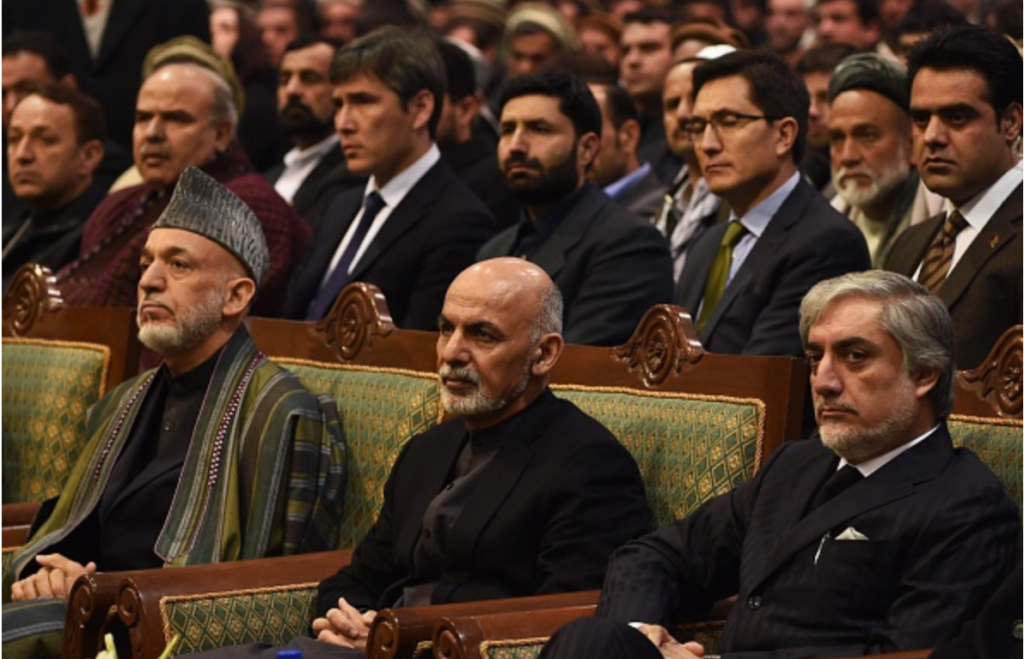
Challenges to the Assembly
Ghani’s plans to project a united Afghan front through the grand assembly may not succeed because of discord within the National Unity Government. Chief Executive Abdullah Abdullah has announced that he will not attend the assembly because he was not consulted on it and because in his assessment, the jirga is not likely to solve the country’s current problems.
In addition, seven other presidential candidates who are contesting against Ghani at the polls, including former Afghan intelligence chief Rahmatullah Nabil, and various political parties have boycotted the event because they fear that Ghani will use the platform of the Loya Jirga to promote his electoral campaign. With the Supreme Court extending Ghani’s term until the elections, such apprehension among presidential contenders and opposition politicians is only bound to grow.
Without broad-based representation of stakeholders in the Loya Jirga and lack of support for its recommendations, the Taliban is not likely to take it seriously and thwart Ghani’s efforts to project a national consensus and strengthen the role of the Afghan government in the peace process.
Future of the Peace Process: Ghani’sNext Moves
With doubts over the efficacy of the Loya Jirga to advance the Afghan peace process, Ghani may have to put his distaste for the U.S.-led talks aside and be flexible to work within that framework. He would have to work to gain the confidence of Afghan politicians to prevent mishaps like Doha in the future. This means that he may have to be open to any kind of agenda that involves the participation of Afghan officials in a dialogue with the Taliban, even if it means that their inclusion may not be considered official Afghan government participation. This non-official representation of the Afghan government could be a first potential stage for their inclusion in talks with the Taliban.
Ghani may also have to consider abandoning his “elections first, before negotiations” stance for the sake of Afghanistan’s stability and prioritize peace above power. Despite the fact that the United Nations lifted a ban on their senior leaders, the Taliban’s declaration of the beginning of their spring offensive manifests efforts to have a greater say in the talks. Thus, the presidential elections, as seen in the past, would be no exception to violence. The brutality unleashed by the Taliban combined with corruption, low voter turnout, and lack of political consensus would only undermine the credibility and legitimacy of the elections. Importantly, the Taliban has not hinted at any compromise that includes holding of elections and resuming talks thereafter. The Taliban would rather resort to violence than agree to a ceasefire to hold elections that would undermine the victory narrative of their movement. Thus, a failed election and the violence accompanying it would undermine the effort that has been put so far in talking to the Taliban.
For Ghani, there are no easy choices ahead.
***
Image 1:James N. Mattis via Flickr
Image 2: Shah Marai/AFP via Getty Images
